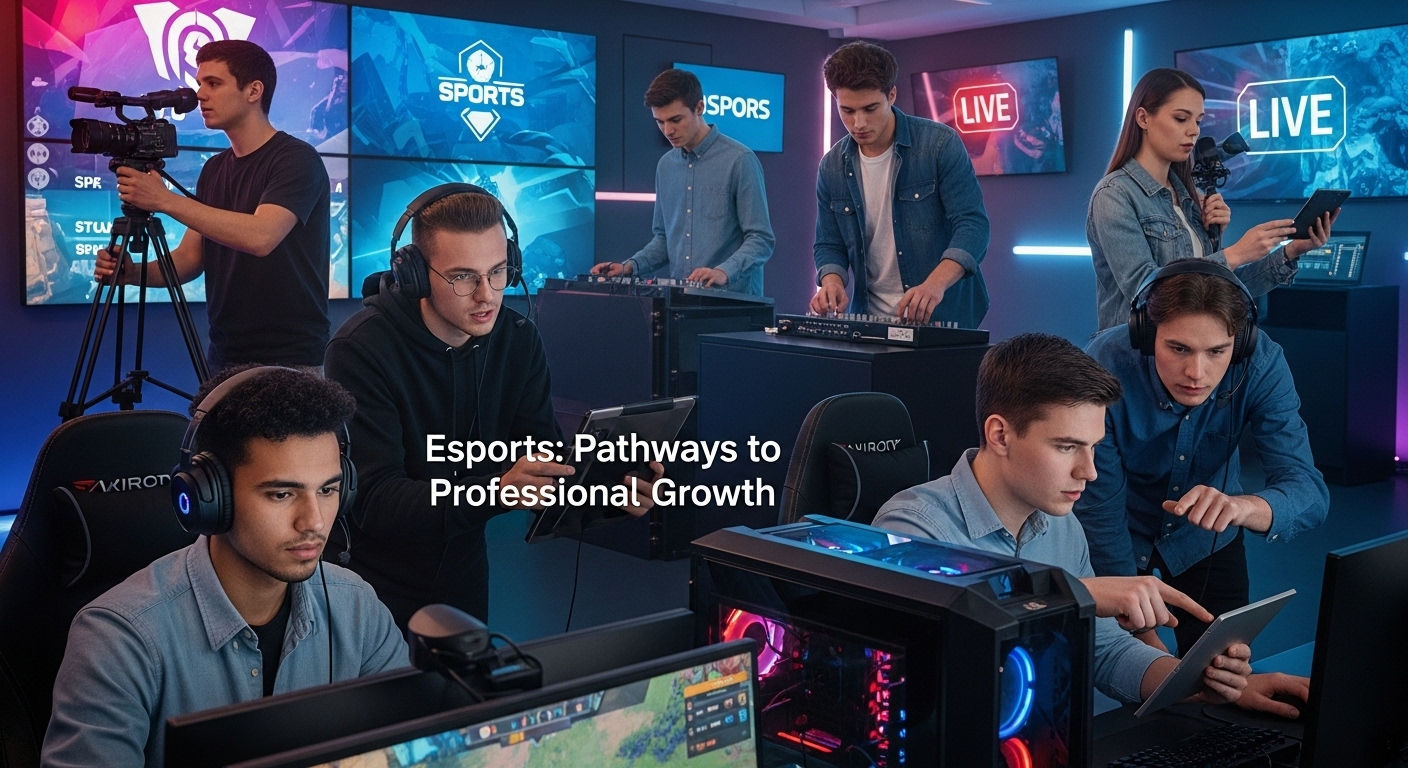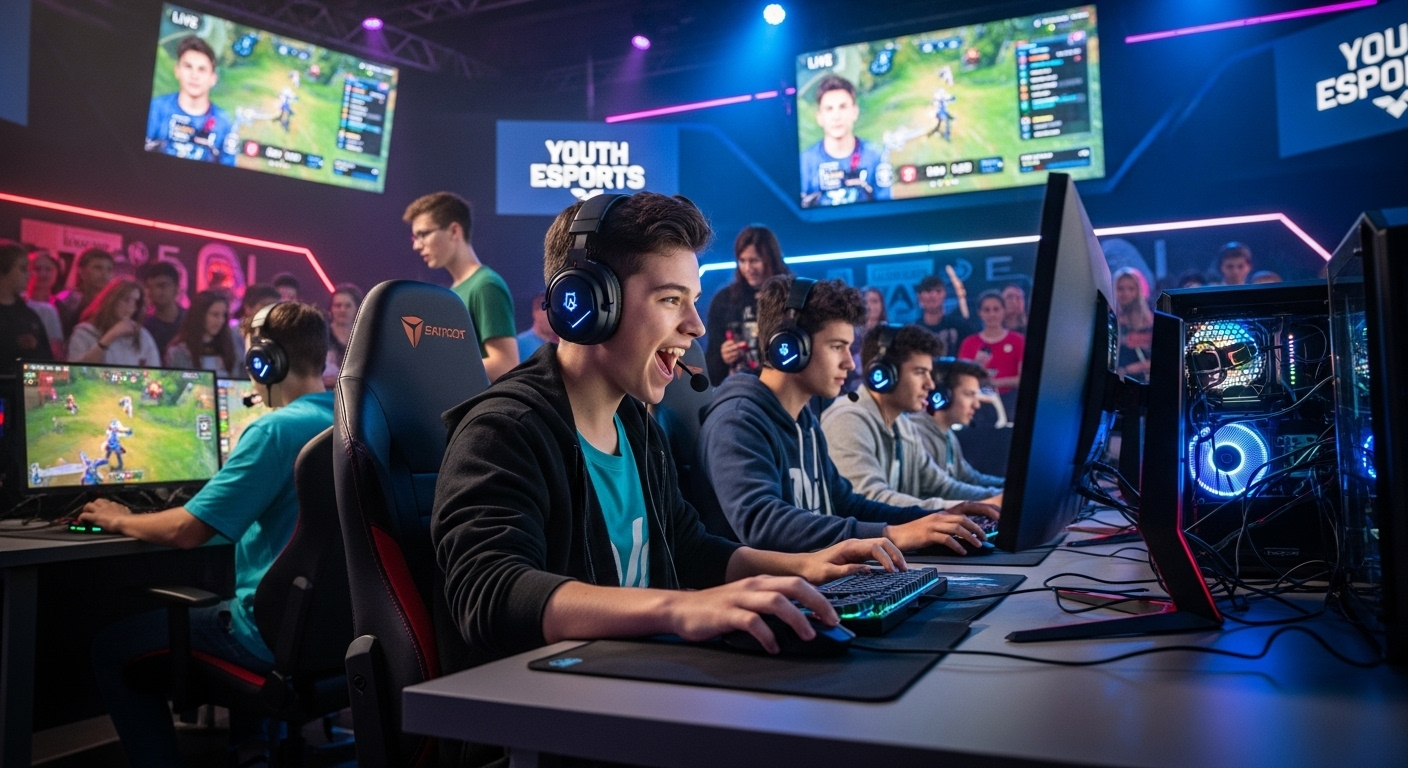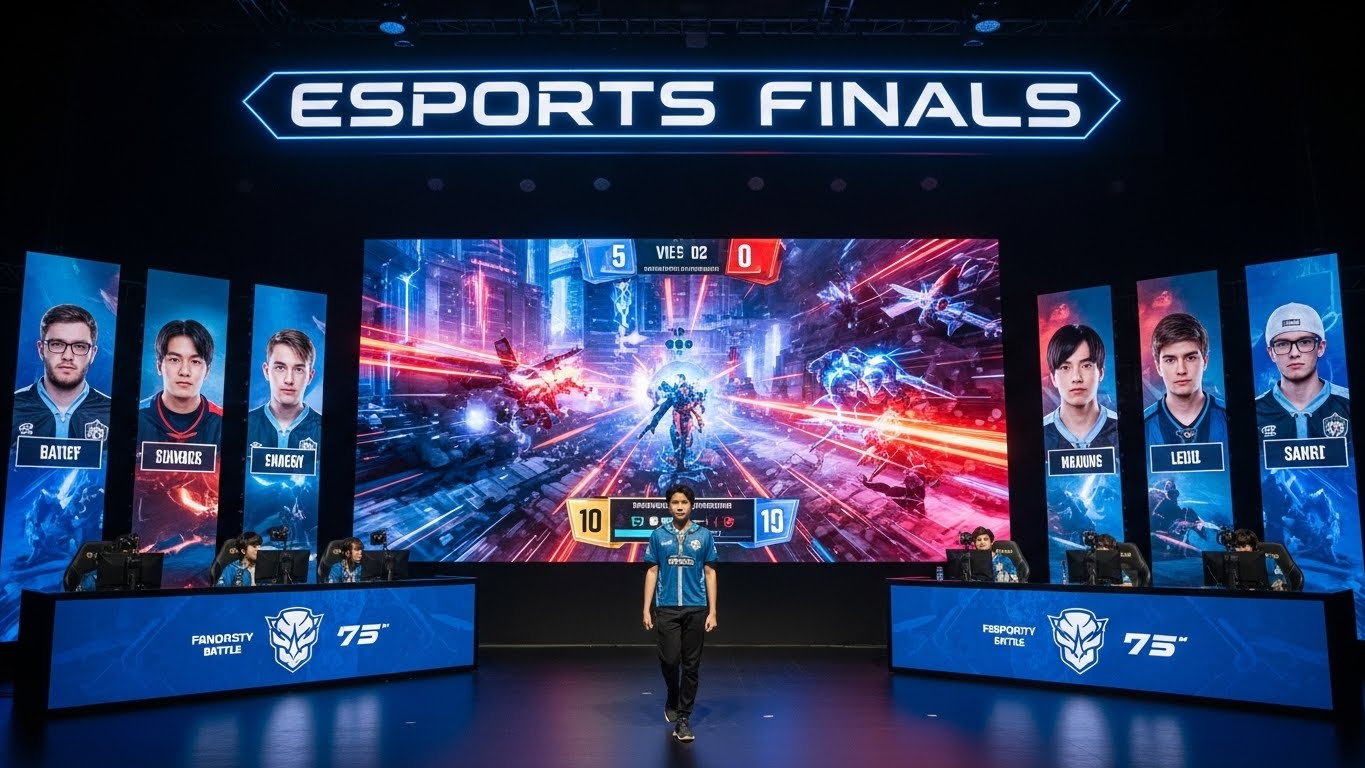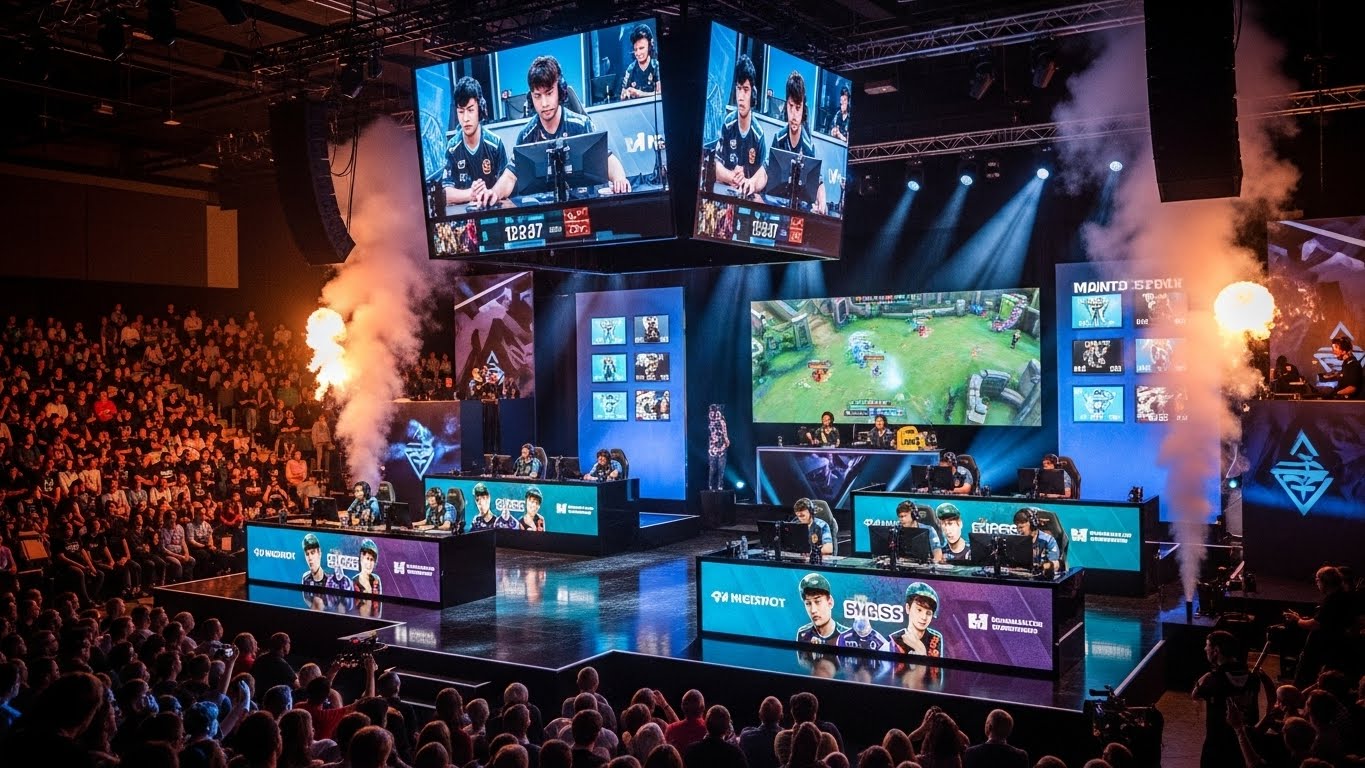The world of esports has grown exponentially over the last decade, transforming video games from a casual hobby into a professional, career-driven industry. Millions of players worldwide dream of turning their passion into profession, imagining themselves competing in packed arenas, winning tournaments, and earning recognition on a global stage. But the path from casual gamer to esports champion is rarely straightforward. It is a journey that demands skill, discipline, strategy, and a deep understanding of both the game and oneself.
This blog explores that journey, from the first hours spent casually playing to the intense training, mental preparation, and competitive milestones that shape a professional esports athlete.
Discovering the Passion
Every esports champion begins as a casual player. For many, gaming starts as a form of entertainment—a way to relax after school, connect with friends, or enjoy a story. At this stage, players experiment with different genres, titles, and playstyles, exploring what resonates with them.
For some, certain games ignite a deeper interest. Perhaps it’s the fast-paced action of a first-person shooter, the strategic complexity of a multiplayer online battle arena (MOBA), or the teamwork and coordination required in real-time strategy games. This stage is crucial: passion is the foundation of motivation. Without genuine interest, it is nearly impossible to endure the challenges of professional competition.
Many champions also discover inspiration during this stage. Watching professional matches, learning about esports personalities, or following tournaments can motivate casual players to think, “I could be part of that world.” The initial spark of aspiration is what sets the journey in motion.
Building Skill and Mastery
Once passion is ignited, the next step is skill development. Casual players often rely on intuition and trial-and-error. Esports champions, however, approach gaming methodically. They study mechanics, practice specific techniques, and analyze strategies.
Training begins with fundamentals. In a game like League of Legends, this means understanding champion abilities, map control, and resource management. In a shooter like Counter-Strike: Global Offensive or Valorant, it involves mastering aim, movement, and positioning. Repetition and deliberate practice are key. Professional players often spend hours daily refining their mechanics, reviewing mistakes, and learning advanced tactics.
Esports champions also develop game sense—the ability to read the game, anticipate opponents, and make strategic decisions. This is what separates highly skilled players from casual ones. While casual gamers may rely on reflexes, professional players combine reflexes with foresight, adapting strategies dynamically during competition.
The Role of Community and Mentorship
A strong community plays a vital role in the transition from casual to professional. Joining online forums, local gaming clubs, or social platforms allows aspiring players to learn from others, exchange strategies, and receive feedback.
Mentorship is another critical factor. Experienced players or coaches can identify weaknesses, suggest training regimens, and provide guidance on navigating competitive landscapes. Many esports champions credit their early success to mentors who helped them refine not only their skills but also their mindset.
Team environments are equally important. Learning to communicate, coordinate, and perform under pressure prepares players for the competitive world. Casual gaming is often solo or loosely cooperative, but professional esports is a team-oriented endeavor that demands synergy, trust, and strategic alignment.
Entering the Competitive Scene
The first steps into organized competition mark a significant milestone. This often begins with local or online tournaments, where players face others with similar skill levels. These early competitions teach valuable lessons in handling pressure, adapting to opponents, and coping with wins and losses.
Winning is not immediate. Most aspiring professionals experience setbacks, losses, and frustration. However, resilience is essential. Champions view these challenges as opportunities for growth, analyzing every match to improve their performance.
As players advance, they enter higher-level leagues and qualifiers. Esports organizations often scout top talent through these platforms. For many, this is the gateway to joining professional teams or being noticed by sponsors and coaches.
Physical and Mental Conditioning
Professional esports requires more than just hand-eye coordination. Physical health and mental resilience are critical components of performance. Long hours of training can lead to strain, fatigue, and burnout if not managed properly.
Physical conditioning—including regular exercise, proper nutrition, and rest—helps maintain focus and reaction time. Mental training, such as mindfulness, stress management, and visualization techniques, equips players to handle the intense pressure of competition.
Esports champions recognize that gaming is not purely digital—it is a holistic endeavor where physical and mental well-being directly impact performance. This awareness separates those who reach the professional level from those who plateau at amateur ranks.
Joining a Professional Team
Once an aspiring player demonstrates skill, consistency, and potential, the next step is joining a professional team. This environment is structured, disciplined, and performance-oriented. Teams have coaches, analysts, and support staff who design training schedules, review gameplay, and provide strategic direction.
Professional teams also offer access to high-level scrimmages and tournaments, providing the experience necessary to compete at the highest level. Players learn to synchronize with teammates, adapt to meta changes, and execute strategies under scrutiny.
The team environment also exposes players to the business side of esports—contracts, sponsorships, media appearances, and fan engagement. Understanding this side of the industry is crucial for building a sustainable career.
Competing on the Global Stage
The pinnacle of the journey is competing in major tournaments and international events. These competitions pit players against the best from around the world, testing skill, strategy, and mental resilience like never before.
At this stage, preparation is exhaustive. Teams analyze opponents’ gameplay, develop counter-strategies, and refine every aspect of performance. Training is relentless, with focus on precision, timing, and execution.
Winning at this level brings recognition, sponsorships, and often significant financial rewards. More importantly, it represents the culmination of years of practice, dedication, and sacrifice. Every match is a testament to the player’s journey from casual gamer to professional competitor.
Beyond Competition: Legacy and Influence
For many esports champions, success extends beyond personal achievement. They become role models, inspiring the next generation of players. Their journey demonstrates that dedication, strategic thinking, and continuous learning can turn passion into profession.
Champions often contribute to the community by streaming, coaching, or creating content. This helps nurture new talent and strengthens the ecosystem. In essence, the journey is not just about personal glory but also about contributing to the broader esports culture.
Challenges Along the Journey
The path to becoming an esports champion is demanding. Players face intense competition, physical strain, mental stress, and uncertainty regarding career longevity. Unlike traditional sports, esports is a relatively young industry, and career stability can be unpredictable.
Balancing education, personal life, and gaming is another challenge. Many aspiring players must make difficult decisions about how much time to dedicate to training versus other commitments.
However, those who navigate these challenges successfully demonstrate qualities that extend beyond gaming: resilience, discipline, strategic thinking, and the ability to adapt to evolving circumstances.
Lessons Learned from the Journey
The journey from casual gamer to esports champion teaches invaluable lessons:
- Discipline: Consistent practice and self-regulation are essential.
- Adaptability: Strategies, metas, and competition evolve constantly; flexibility is key.
- Teamwork: Success often depends on coordination, communication, and trust.
- Mental Strength: Handling pressure, setbacks, and high-stakes situations is crucial.
- Continuous Learning: Champions never stop analyzing, improving, and innovating.
These lessons are not limited to esports—they apply to any competitive or professional pursuit, reinforcing the universal value of dedication and strategic thinking.
Conclusion
The journey from casual gamer to esports champion is a story of growth, perseverance, and transformation. It begins with passion, develops through skill-building and community support, and culminates in professional competition and global recognition. Along the way, players acquire discipline, mental resilience, and strategic insight that shape both their gaming careers and personal development.
Esports champions are not born—they are made through countless hours of practice, analysis, and dedication. Their journey demonstrates that with focus, determination, and a love for the game, ordinary players can reach extraordinary heights. The path may be challenging, but the reward is not just victory—it is mastery, legacy, and the realization of a lifelong dream.



